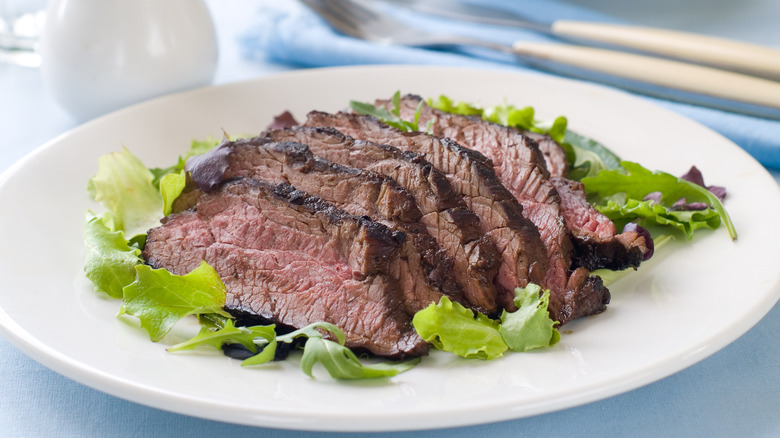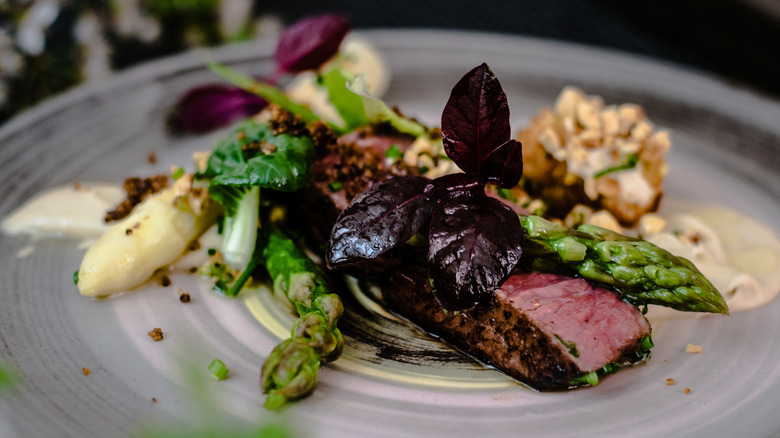How Ostrich Could Become A Sustainable Alternative To Steak
These days, many people are turning to beef alternatives. For some, this switch is motivated by health concerns, while for others, cutting out beef is a decision based on environmental impact. Cattle, according to The Guardian, account for about 14% of methane emissions and are unfortunately becoming a bigger and bigger threat to global warming as time goes on.
That being said, cutting out beef doesn't have to mean cutting out meat entirely. Many grocery stores are now stocked with plant-based meat options, while restaurants boast menus with plant-based food innovations. In that regard, it's actually a bit of an exciting time to be alive.
And if eating "fake meat" isn't your thing, there are plenty of meats that are similar enough to beef to serve as substitutions. Just as people claim frog legs taste like chicken, there are other proteins on the market that taste just like beef. One of those meats happens to be ostrich. Sounds a little weird, sure, but hear us out.
Ostrich tastes pretty darn similar to beef
Although ostriches are technically classified as poultry, their meat is a lot more similar to beef than you might expect. Unlike chicken, turkey, and other birds, ostriches have red meat. What's more, ostrich meat has been said to have the flavor of grass-fed beef, albeit less marbled.
Of course, beef and ostrich meat are still two different products, but the latter is definitely a great option. As one ostrich farmer explained to WTOP News, ostrich meat is 97% fat-free — whereas beef is typically between 70 and 95% lean. Ostrich meat is also low in cholesterol and rich in protein and iron.
The biggest benefit of consuming ostrich meat, however, is the lessened environmental impact. Not only do these birds take up less space than cattle, but ostriches also require less food and water than cattle. Per FoodPrint, one pound of beef takes five pounds of feed to produce, while one pound of ostrich only takes about 1.7 pounds of feed. If you like your protein red and don't mind paying a bit more for exotic meat, it's certainly worth looking into.

